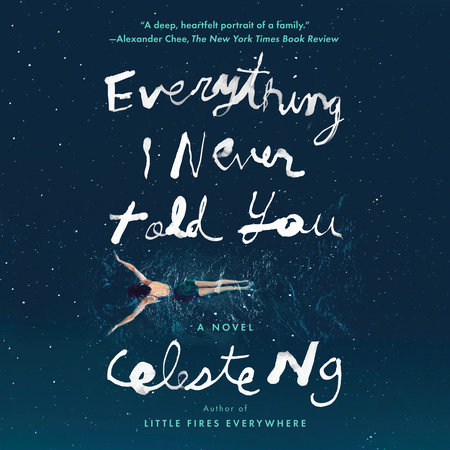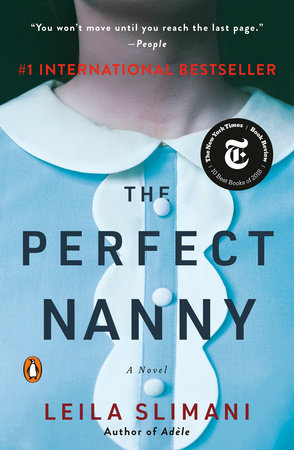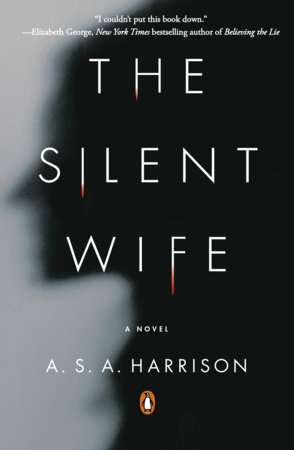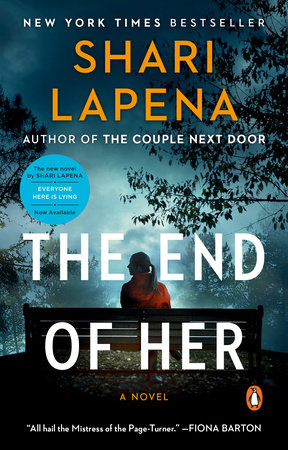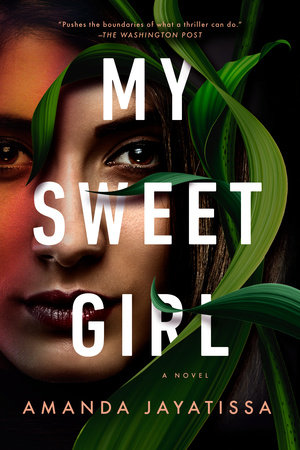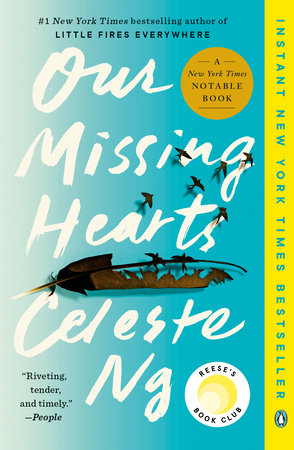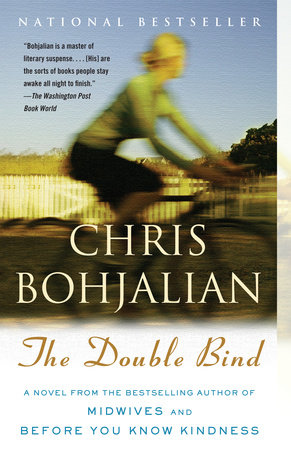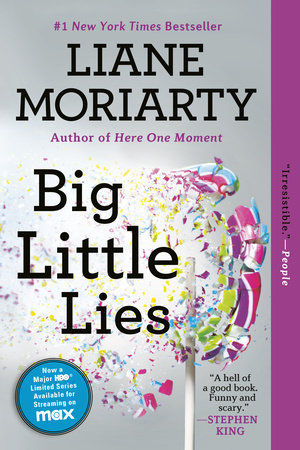What compelled you to write this book?
My stories almost always begin with images—in this case, the image of a young girl falling into deep water. I started writing to figure out how she got there: Was she pushed? Did she slip? Did she jump? As I wrote my way into the book, I discovered it was a story about not just the girl but about her family, her family’s history, and everything in her life that had led her to this point and about whether (and how) her family would be able to go on. What seemed like the end of the story actually turned out to be the center.
The discovery of Lydia’s death spurs so many questions for her family. How did you approach writing about loss and grief?
When you lose someone you love, especially suddenly, there’s immense regret and immense self-doubt. It’s impossible not to ask yourself questions: Could you have saved them in some way? Could you, by leaving five minutes later or arriving a day earlier or saying just the right words, have changed what happened? Inevitably, you reconsider and reassess the relationship you had with that person, and it can be hardest if that relationship was strained. James, Marilyn, Nath, and Hannah each feel a lot of guilt about their relationships with Lydia—and the ways that, deep down, they know they’ve pressured, disappointed, or failed her—and that complicates their reactions to her death. Any act of writing is an act of empathy: You try to imagine yourself into another person’s mind and skin. I tried to ask myself the questions the characters would have asked themselves.
The relationships between the siblings—Nath, Lydia, and Hannah—are immediately recognizable and so well drawn. They love one another, but they also get angry, jealous, and confused and take it out on one another. Can you speak to their dynamics? Did you draw on your own childhood?
Sibling relationships are fascinating: You have the same parents and grow up alongside each other, yet more often than not, siblings are incredibly different from one another and have incredibly different experiences even within the same family. You share so much that you feel you should understand one another completely, yet of course there’s also enough distance between you that that’s almost never the case. It gets even more complicated when one sibling is clearly the favorite in the family. The family constellation can get really skewed when one star shines much brighter than the rest.
My own sister is eleven years older than I am. Because she was so much older, we never really fought; I actually think our relationship was stronger because we weren’t close in age. At the same time, though, I missed her terribly when I was seven and she went off to college—that informed Lydia’s feelings of abandonment when Nath heads to Harvard. And I always idolized my sister; there’s definitely an aspect of that in Hannah’s relationship with Lydia.
You began writing the book before you had your son. How did becoming a parent affect your approach to your characters and their stories, especially James and Marilyn?
Even before I had children, I often found myself focusing on parents and children in my fiction. Yourrelationship with your parents is maybe the most fundamental and the most powerful, even morethan friendship or romantic love. It’s the first relationship you ever have, and it’s probably the greatestsingle influence on your outlook and the kind of person you become. Most of us spend our lives eithertrying to live up to our parents’ ideals or actively rebelling against them.
When I started writing the novel—having never been a parent—I definitely identified morewith the children, especially Lydia. After my son was born, though, I became much more sympatheticto Marilyn and James. I started to understand how deeply parents want the best for their childrenand how that desire can sometimes blind you to what actually is best. This isn’t to say that I “switchedsides,” only that becoming a parent made my perspective more balanced, I think, and made the bookmore nuanced. Now I identify with the parents at least as much as I identify with the children.
The book is set in Ohio in the 1970s. You grew up in Pennsylvania and Ohio—how did your time there inform the book?
Both of the small suburbs I grew up in—first outside Pittsburgh, then outside Cleveland—had a small-town feel. My first elementary school was tiny, one of those schools where the gym is also the cafeteria and the auditorium, and on my street the neighbor kids all played together. But more than that, I remember a distinct sense of restlessness in the air while I was growing up, a feeling that if you wanted an exciting or important or interesting life, you needed to escape. Pittsburgh in the 1980s and Cleveland in the early 1990s were depressed and depressing places: a lot of closed factories, a lot of tension and unemployment, a lot of rust. So I knew the kind of insulated, almost suffocated feeling teenagers like Nath and Lydia—and even adults like James and Marilyn—might have, the feeling that the place you’re in is too small.
Through all members of the Lee family, you write touchingly and perceptively about feeling like an outsider and being measured against stereotypes and others’ perceptions. Can you discuss your personal experience and how you approached these themes in the book?
My parents came to the U.S. from Hong Kong and moved straight into the Midwest: Indiana, Illinois, Pennsylvania, Ohio. Most of the time I was growing up, we were virtually the only Asians in the community. In my school in Pittsburgh, for instance, I was one of two nonwhite girls, and the only Asian, in all four grades. Like most Asian Americans, my family experienced some outright discrimination: Once, neighborhood kids put cherry bombs in our mailbox; another time, a man got in our faces while we were waiting at a bus stop, spitting at us and telling us, “Go back to Vietnam or Korea or wherever the hell you came from.”
More insidious than those moments of outright hostility, though, and maybe more powerful are the constant low-level reminders that you’re different. Many of us feel different in some way, but it’s really jarring when one of your differences is obvious at a glance—other people can tell you’re different simply by looking at you. (It’s hard to explain just how strange that is if you’ve never experienced it. My husband and I had talked about it many times, but he didn’t really know what it felt like until we went to Hong Kong and he—a very tall white man—was surrounded by thousands of Asians.) Even when you feel like you belong, other people’s reactions—even stares and offhand remarks—can make you feel that you don’t, startlingly often. I drew on that to imagine the experiences of James, Lydia, Nath, and Hannah, or at least their reactions to those experiences. In terms of actual encounters, I didn’t have to imagine much: They all came from life, from the girls who throw rocks at James’s car, to the people who speak to you slower and louder as if you might not understand English, to the woman in the grocery store who proudly identifies the children as Chinese before pulling her eyes into slits.
In the novel, though, I didn’t want to explore just racial difference. There are all kinds of ways of feeling like an outsider. For example, my mother is a chemist and my sister is a scientist—both women in heavily male-dominated fields—and I often feel like an outsider or an impostor myself: Am I smart enough/experienced enough/insert-adjective-here enough? All of the characters grapple with some version of that feeling.
Marilyn is deeply conflicted about being a homemaker and wanting to finish her degree and achieving more in her professional life. What did you seek to explore through her desires and decisions?
This is a long-standing question that most women face: How do you balance a family and a professional life of your own? I struggle with this myself, as does every other woman I know, and Marilyn’s situation is a magnified version. It’s striking to remember that in her time—just a generation ago—she had so many fewer paths open to her. But even with more options, we haven’t gotten this figured out yet, either. We’re still actively wrestling with the question of balance and women’s roles. Look at the tremendous interest in Lean In and the uproar over Anne-Marie Slaughter’s essay in The Atlantic, “Why Women Still Can’t Have It All.” Recently a Princeton alumna wrote an essay telling young female grads that the most important thing to do in college was to find a husband. Many women were outraged—but she’s also just published a book. The debate over what women can and should do goes on.
You grew up in a family of scientists. What compelled you to become a writer? How did that shape how you approach writing?
I was always interested in stories—reading them, making them up, telling them to my parents and friends. There’s an argument for nature over nurture right there! But actually, there’s more overlap between science and writing than you’d expect. Scientists are really interested in figuring out how the world works and why things happen the way they do. A science experiment is really a what-if: “Hmm, what if I put these things together under these conditions?” I do the same thing in my writing, only I do it with people on the page: “What if this family was in this situation?”
What does the title Everything I Never Told You mean to you?
The title is actually an echo of one of the last lines of the book. Everything I Never Told You refers, on the one hand, to the secrets that the members of the Lee family keep from one another—all the things they lock inside because they’re afraid to say them or they’re ashamed to say them. But it also refers to all the things they don’t say by accident, so to speak—the things they forget to say because they don’t seem important. After Lydia’s death, each member of her family thinks back to the last time they saw her and what they’d have said if they knew it was the last time. The things that go unsaid are often the things that eat at you—whether because you didn’t get to have your say or because the other person never got to hear you and really wanted to.
